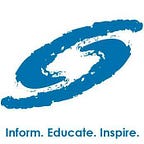How this young scientist overcame obstacles in research and gained confidence
By Skyler Jones, senior at Ossining High School and Regeneron Science Talent Search 2018 finalist
I had never worked so hard to feel like I knew so little.
I was sitting in the middle of my first group meeting at my new lab, a physical chemistry lab where I had secured a research mentorship to study solar cell semiconductor materials for the next three years. For years, I had wanted to do research, and had spent months reading papers on chemistry and alternative energy and reaching out to local research groups.
After my new mentor offered me a position in his group and invited me to their next weekly meeting, I tripled my efforts, reading every paper published by his lab that I could get my hands on. I scoured the internet trying to learn every new term and concept I came across.
Yet, as one of the graduate students stood presenting the most recent updates on his research, I could not understand a word.
I was swimming in a sea of unknown graphs, equations, and terminology. How was I ever going to learn enough to do meaningful research of my own? And who would be willing to work with me when I had such a limited grasp of the field? I began to wonder if I had chosen the wrong topic, if physical chemistry and laser spectroscopy were simply too difficult for a high school student.
But as I listened to the group members debate possible interpretations of their newest results, I was filled with overwhelming awe and admiration of their knowledge. I wanted that knowledge too. High on the excitement of a new challenge, I resolved to do everything in my power to attain that knowledge, and to contribute to this field of research.
As the summer started and I began work in the lab, not much changed. Coming home frustrated after long days of reading papers I still didn’t fully understand, staring at confusing and ever-changing graphs on the monitor connected to the laser, and asking an endless barrage of questions, I felt inadequate.
I had always worked extremely hard in school, and I prided myself in that. Yet things also came to me relatively easily, and I was not used to feeling so hopelessly confused. I had always known that if I paid attention, did my work, and studied hard, I would succeed. But lab was not like that. I still loved my research, challenges and all, but it seemed that the stubbornly opaque research just didn’t love me back.
Without warning, things changed.
Waiting to catch the train with my dad after a particularly late night in the lab completing a stressful yet exhilarating crystal synthesis, I told him what I had learned that day, as I often did. As I sat on the train platform on that unusually cold night, stumbling over my words and drawing up numerous diagrams, something suddenly clicked into place. The few new concepts I had asked the graduate students about that day were the key to linking together my piecemeal understanding of my research.
I spoke raptly for nearly an hour, so absorbed and excited by my new understanding and renewed love of my research that I forgot my dad was there. I was finally getting somewhere.
My confidence restored, I worked madly to further my research and collect data, loving the rush I got whenever I learned something new. As the summer ended and school began, I applied that same manic energy toward preparing and presenting my work at regional science competitions, and even won a spot as a finalist at ISWEEEP, an international science fair. Emailing my mentor ecstatically to tell him the good news, my heart stopped at his reply. Rather than once again struggling to keep up at the next group meeting, now I would be the one presenting my work.
